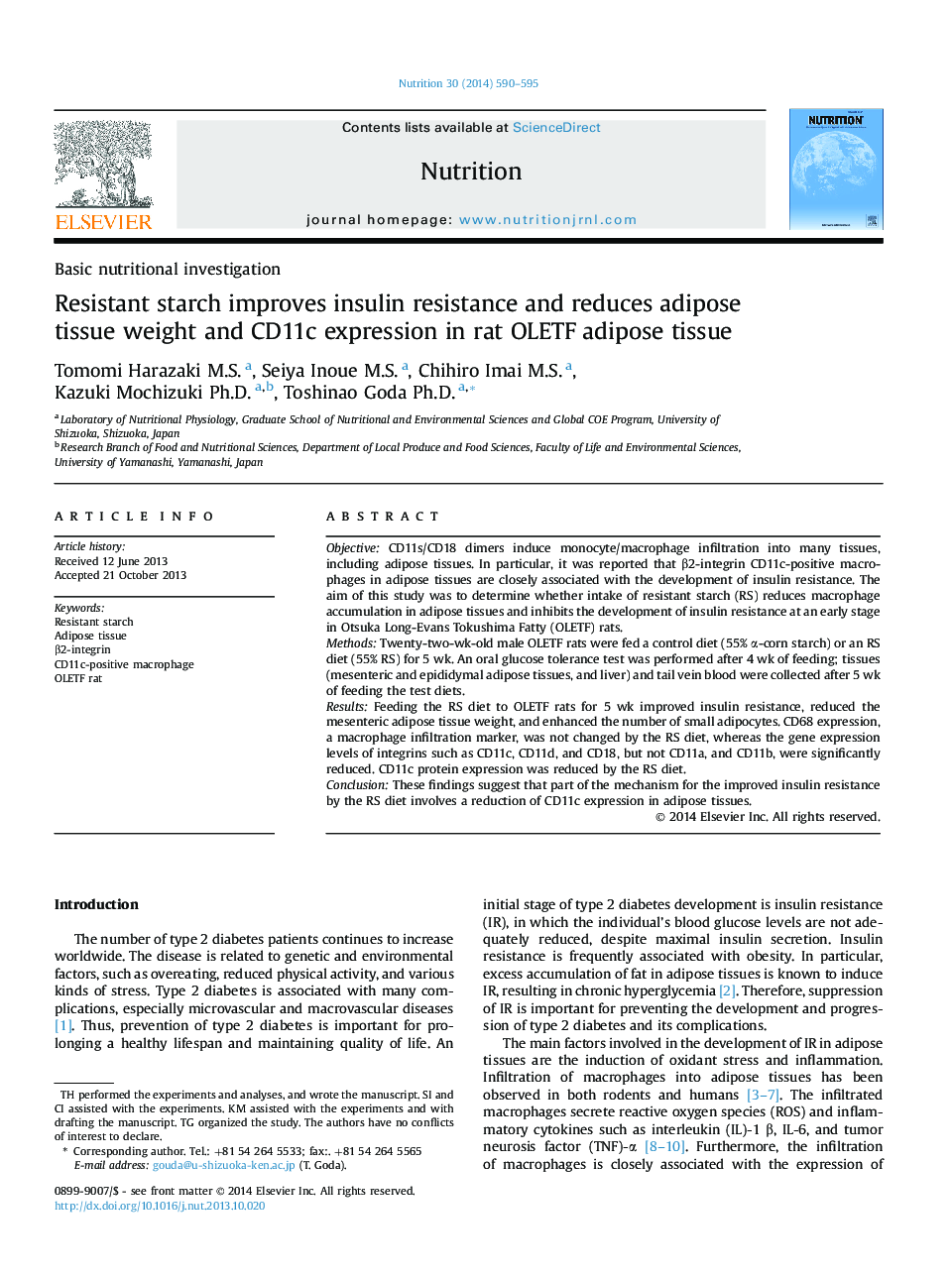| Article ID | Journal | Published Year | Pages | File Type |
|---|---|---|---|---|
| 6089668 | Nutrition | 2014 | 6 Pages |
ObjectiveCD11s/CD18 dimers induce monocyte/macrophage infiltration into many tissues, including adipose tissues. In particular, it was reported that β2-integrin CD11c-positive macrophages in adipose tissues are closely associated with the development of insulin resistance. The aim of this study was to determine whether intake of resistant starch (RS) reduces macrophage accumulation in adipose tissues and inhibits the development of insulin resistance at an early stage in Otsuka Long-Evans Tokushima Fatty (OLETF) rats.MethodsTwenty-two-wk-old male OLETF rats were fed a control diet (55% α-corn starch) or an RS diet (55% RS) for 5 wk. An oral glucose tolerance test was performed after 4 wk of feeding; tissues (mesenteric and epididymal adipose tissues, and liver) and tail vein blood were collected after 5 wk of feeding the test diets.ResultsFeeding the RS diet to OLETF rats for 5 wk improved insulin resistance, reduced the mesenteric adipose tissue weight, and enhanced the number of small adipocytes. CD68 expression, a macrophage infiltration marker, was not changed by the RS diet, whereas the gene expression levels of integrins such as CD11c, CD11d, and CD18, but not CD11a, and CD11b, were significantly reduced. CD11c protein expression was reduced by the RS diet.ConclusionThese findings suggest that part of the mechanism for the improved insulin resistance by the RS diet involves a reduction of CD11c expression in adipose tissues.
